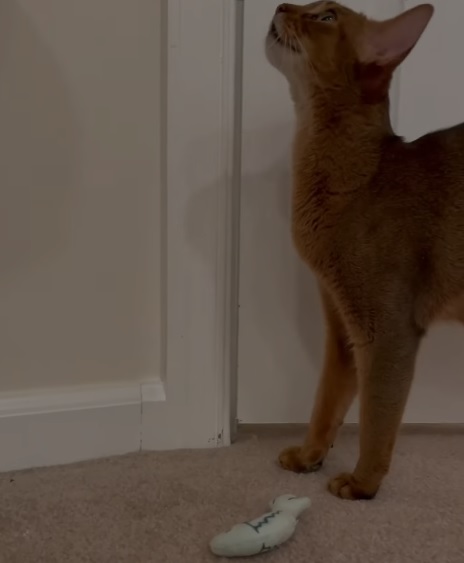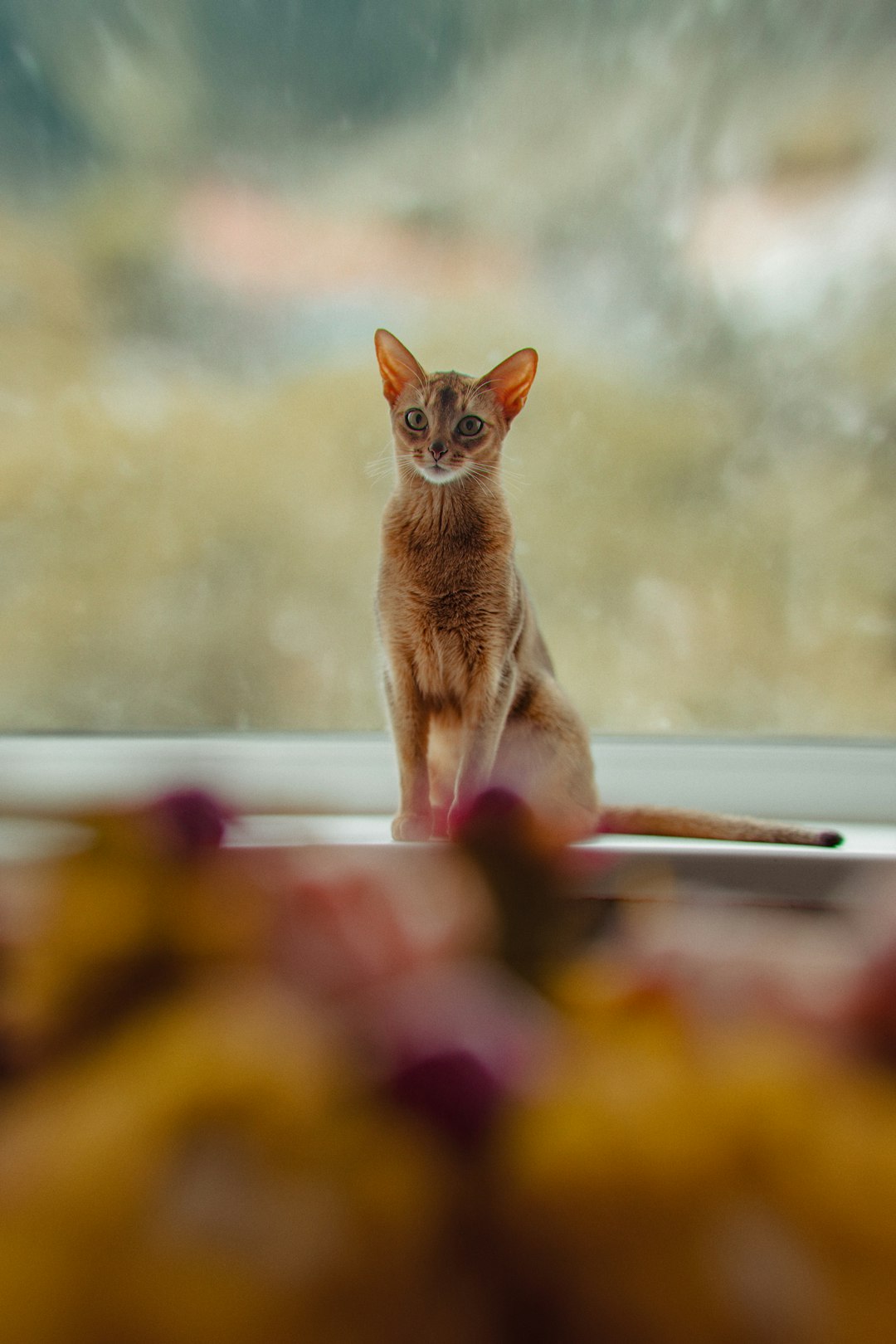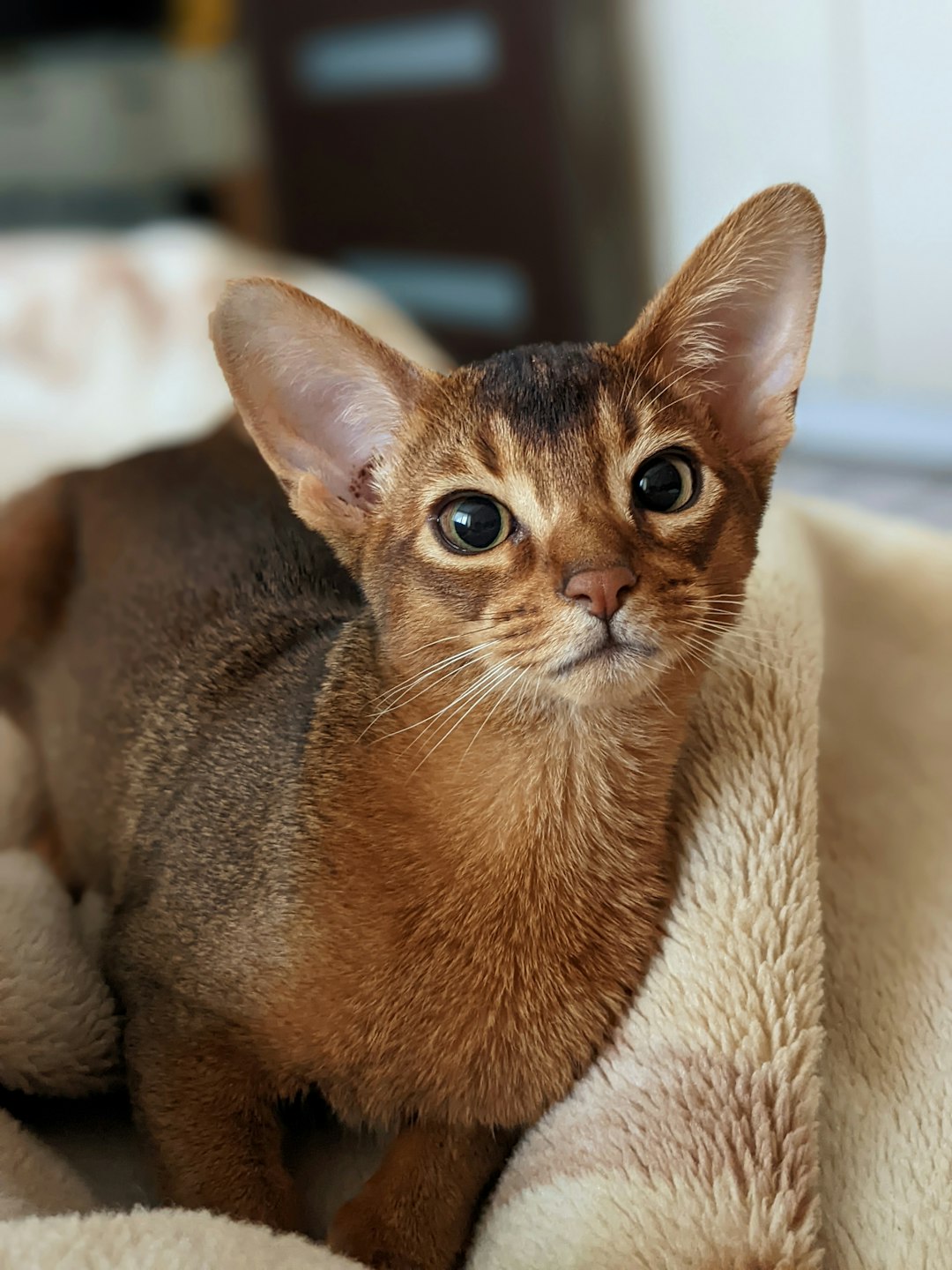The Abyssinian cat stands out as an intelligent and energetic breed, captivating feline enthusiasts worldwide. With their striking appearance and lively personality, these cats require plenty of stimulation and engagement. Often characterized by their playful behavior, Abyssinians thrive in environments that challenge their curious minds. In this blog post, we will delve into the unique traits and characteristics that define this remarkable breed, ensuring you understand what it takes to care for an Abyssinian cat effectively.
Physical Characteristics of Abyssinian Cats
The Abyssinian cat boasts a striking appearance that captivates many cat enthusiasts. Known for their unique coat and elegant stature, they display several distinctive physical traits.
Key Features:
Coat: The Abyssinian cat’s coat features a rich, ticked pattern with bands of color, giving them a unique appearance. This coat typically comes in various shades, including:
- Ruddy (golden-brown)
- Red
- Blue
- Fawn
Body Structure: Their bodies are medium-sized, muscular, and athletic. Abyssinians have:
- A slight curve to their backs
- Long legs that enhance their agility
- A slender yet robust build
Head and Face: This breed has a distinct head shape characterized by:
- A wedge-shaped head
- Large, pointed ears that stand erect
- Almond-shaped eyes that can be copper, gold, or green, adding to their expressive appearance
Tail: Their tails are long and taper to a finer point, which complements their overall elegant look.
Comparison Table of Physical Traits
| Trait | Description |
|---|---|
| Coat Color | Ruddy, Red, Blue, Fawn |
| Body Type | Medium, Muscular |
| Head Shape | Wedge-shaped |
| Ear Size | Large, Pointed |
| Eye Shape | Almond-shaped |
| Tail | Long, Tapering |
In summary, the Abyssinian cat not only stands out for its beauty but also showcases a well-balanced, athletic body with a graceful demeanor. These physical characteristics further contribute to their reputation as one of the most captivating cat breeds in the feline world.
Temperament and Personality Traits
The Abyssinian cat is known for its vibrant personality and engaging temperament. Typically affectionate and social, they form strong bonds with their families. Here are some defining traits of this remarkable breed:
- Playful Nature: Abyssinians maintain a kitten-like playfulness throughout their lives, often enjoying interactive games and activities.
- Intelligent and Curious: This breed exhibits high levels of intelligence. They love to explore their surroundings, often getting into everything.
- Affectionate Companions: Abyssinians thrive on human interaction. They enjoy cuddling and sitting on laps, seeking attention from their owners.
- Vocal Communication: While they might not be the most vocal breed, when they do speak, they express their desires clearly, whether it’s playtime or mealtime.
Comparison with Other Breeds
| Trait | Abyssinian Cat | Siamese Cat | Persian Cat |
|---|---|---|---|
| Playfulness | High | Moderate | Low |
| Intelligence | Very High | High | Moderate |
| Affection Level | High | Very High | Moderate |
| Independence Level | Moderate | Low | High |
Abyssinian cats, therefore, are ideal for families or individuals looking for an engaging and affectionate pet. They are not just smart; their spirited personality also adds joy to any home. Embrace the lively nature of an Abyssinian cat, and you’ll discover a beloved companion who enhances your life with their charm and energy.
Intelligence and Trainability
The Abyssinian cat is renowned for its exceptional intelligence and keen trainability. Here are some compelling traits that highlight these characteristics:
- Problem Solving: Abyssinian cats often exhibit remarkable problem-solving skills. They enjoy puzzles and interactive toys that challenge their minds.
- Quick Learners: With their sharp intellect, Abyssinians adapt quickly to commands and tricks. This trait makes them excellent candidates for clicker training.
- Curiosity: Their inquisitive nature drives them to explore their surroundings. This curiosity can be an advantage when introducing them to new concepts or environments.
Comparison of Trainability in Cat Breeds
| Breed | Intelligence Level | Trainability Ease | Recommended Activities |
|---|---|---|---|
| Abyssinian | High | Easy | Agility courses, puzzle games |
| Siamese | High | Moderate | Fetch, interactive play |
| Maine Coon | Moderate | Easy | Trick training |
| British Shorthair | Moderate | Difficult | Basic commands, litter training |
To effectively train an Abyssinian cat, consider the following techniques:
- Positive Reinforcement: Use treats and praise to encourage desired behavior.
- Short Sessions: Keep training sessions brief, typically around 5-10 minutes, to maintain their focus.
- Variety in Activities: Change up the games to keep their interest piqued, incorporating both mental and physical challenges.
In summary, the Abyssinian cat not only showcases intelligence but also thrives in a stimulating environment that promotes learning and play.
Energy Levels and Playfulness
The Abyssinian cat stands out as one of the most energetic and playful feline breeds. Known for their boundless enthusiasm, these cats embody an engaging spirit that invites play and interaction. This section explores their energy levels and playful nature.
Key Characteristics:
- High Energy: Abyssinians possess a natural zest for life. They thrive on activity, making them excellent companions for active households.
- Playful Behavior: This breed enjoys interactive toys, climbing structures, and games that stimulate their inquisitive minds. Activities such as fetch or laser pointers can keep them entertained for hours.
- Agility: Abyssinians are agile jumpers and climbers. They often utilize their environment, scaling shelves and exploring high places, showcasing their athleticism.
Comparison Table: Abyssinian Cat vs. Other Breeds
| Trait | Abyssinian Cat | Persian Cat | Siamese Cat |
|---|---|---|---|
| Energy Level | High | Low | Moderate |
| Playfulness | Very High | Low | High |
| Need for Exercise | High | Low | Moderate |
| Ideal Activity | Interactive play | Cuddling | Social play |
In Summary:
The Abyssinian cat is a vivacious and playful breed. Their energy levels demand regular engagement, making them ideal for families or individuals who enjoy an active lifestyle. By providing plenty of stimulating toys and opportunities for play, you can ensure these spirited cats remain happy and fulfilled.
Grooming Needs and Maintenance
Caring for an Abyssinian cat requires attention to grooming, primarily due to their unique coat and active nature. Fortunately, these cats demand less maintenance than some breeds, making them relatively easy to care for. Here’s what you need to know:
Grooming Essentials for Your Abyssinian Cat:
- Coat Type: The Abyssinian sports a short, ticked coat that resists dirt.
- Brushing Frequency: Aim for brushing your Abyssinian cat once a week to remove loose hair and prevent matting.
- Bathing: Generally, occasional baths may be necessary, especially after outdoor play. However, most Abyssinians keep themselves clean.
Recommended Grooming Tools:
| Tool | Purpose |
|---|---|
| Soft-bristle brush | For regular brushing to reduce shedding |
| Cat shampoo | A gentle, hypoallergenic option for occasional baths |
| Nail clippers | To maintain healthy claw length |
| Ear cleaner | To prevent wax buildup and ear infections |
Additional Tips:
- Dental Care: Regular teeth brushing can prevent dental issues.
- Monitor for Build-Up: Keep an eye on your Abyssinian’s ears and teeth for any signs of dirt or infection.
By following these grooming guidelines, you ensure your Abyssinian cat remains healthy, happy, and looking its best! Regular maintenance not only enhances their physical appearance but also strengthens your bond with this intelligent breed.
Health Issues Common in Abyssinians
Abyssinian cats are known for their striking appearance and engaging personalities, but like all breeds, they can be prone to specific health issues. Awareness of these potential concerns can help owners provide better care. Here’s a snapshot of common health issues impacting the Abyssinian cat:
| Health Issue | Description |
|---|---|
| Dental Disease | Abyssinians can develop gingivitis and periodontal disease, making regular dental check-ups crucial. |
| Hypertrophic Cardiomyopathy (HCM) | This genetic heart condition is common in many cat breeds, including Abyssinians. Annual vet visits can catch early signs. |
| Kidney Disease | Abyssinians may suffer from chronic kidney disease. Regular blood tests can help monitor kidney function. |
| Pyruvate Kinase Deficiency | A genetic disorder affecting red blood cells, leading to anemia. Testing for this condition is advisable for responsible breeding. |
Prevention Tips:
- Schedule regular vet check-ups to catch problems early.
- Maintain a balanced diet and encourage hydration to support kidney health.
- Perform dental care at home, including brushing teeth.
By paying attention to these health issues, Abyssinian cat owners can ensure that their feline companions lead happy, healthy lives. Remember, proactive care is key to longevity!
Diet and Nutrition Requirements
Providing your Abyssinian cat with a balanced and nutritious diet is crucial for their health and well-being. This active and intelligent breed benefits from specific dietary considerations, ensuring they maintain optimal energy levels and overall vitality. Here are some essential guidelines for feeding your Abyssinian:
High-Quality Protein: Choosing a cat food that lists a high-quality protein source, such as chicken or fish, as the primary ingredient is vital. Abyssinians thrive on protein-rich diets that support their muscle development.
Fat Content: Look for foods that contain healthy fats, such as omega-3 and omega-6 fatty acids. These contribute to healthy skin and coat while providing energy.
Carbohydrates: While cats do not require carbohydrates as their main source of energy, incorporating a small amount of digestible carbohydrates like rice or peas can be beneficial for energy.
Vitamins and Minerals: Ensure your Abyssinian’s diet contains essential vitamins and minerals which support their immune system and overall health.
Here’s a simple comparison table to guide your food choice:
| Nutrient | Recommended Level |
|---|---|
| Protein | 30-40% |
| Fat | 15-20% |
| Fiber | 3-5% |
| Moisture | 10-12% |
Ultimately, it’s important to consult with your veterinarian for personalized dietary recommendations. A well-fed Abyssinian cat will not only thrive but also enjoy its playful and energetic nature for years to come.
Ideal Living Environment for Abyssinians
Creating a suitable living environment for your Abyssinian cat is crucial for its well-being. These spirited and intelligent felines thrive in settings that meet their unique needs. Here are several factors to consider when establishing the ideal home for your Abyssinian cat:
Space to Roam: Abyssinians are active and playful. They require ample space to explore and play. Ensure your home has:
- Different levels (like cat trees or shelves)
- Interactive toys to keep them stimulated
Quiet Areas: Although energetic, Abyssinians also appreciate a calming retreat. Set up a cozy nook with:
- A soft bed
- Access to a sunny spot for relaxation
Social Interaction: This breed enjoys human companionship and can get lonely. Incorporate:
- Regular playtime with family members
- Opportunities for interaction with other pets
Safe Outdoor Access: If possible, consider a secure outdoor space where your Abyssinian can explore nature safely. Options include:
- Enclosed cat patios (catios)
- Supervised outings on a leash
Temperature Control: Maintain a comfortable indoor climate, as Abyssinians are sensitive to extreme temperatures.
By providing a stimulating and responsive environment, you not only nurture your Abyssinian cat’s natural curious nature but also foster a loving bond.
Socialization with Other Pets and Humans
Socialization is crucial for the Abyssinian cat as it helps them develop into well-adjusted and friendly companions. Here’s why and how Abyssinians thrive in social settings:
Outgoing Nature: Abyssinian cats are known for their friendly and curious personalities. They often enjoy the company of both humans and other pets, making them excellent additions to families.
Early Socialization: Introduce your Abyssinian cat to different people, pets, and environments during their kitten stage. This exposure fosters confidence and reduces anxiety around new experiences.
Positive Interactions: Encourage interactions with gentle dogs or other calm cats. Positive reinforcement, such as treats or praise, can help your Abyssinian associate social contact with rewards.
Comparison of Socialization Needs
| Breed | Socialization Needs | Interaction with Other Pets |
|---|---|---|
| Abyssinian Cat | High – needs early exposure | Generally friendly; enjoys play |
| Siamese Cat | Moderate – thrives on company | Can be territorial; cautious |
| Persian Cat | Low – prefers solitude | Accepts other pets with time |
In conclusion, the Abyssinian cat not only forms strong bonds with their human family members but also adapts well to various social situations. Focus on nurturing your Abyssinian’s sociable spirit through early and positive experiences.
History and Origins of the Abyssinian Breed
The Abyssinian cat boasts a fascinating history that captivates both cat enthusiasts and historians alike. This breed’s origins are somewhat shrouded in mystery, although several key facts shed light on its past.
Ancient Roots: Many believe the Abyssinian cat descended from ancient Egypt. Evidence suggests that cats resembling modern Abyssinians were depicted in Egyptian art, indicating their long-standing relationship with humans. Notably, the breed’s ticked coat mirrors the appearance of these historical felines.
Ethiopian Connection: Initially classified as “Abyssinian,” the breed’s name derives from Ethiopia, formerly known as Abyssinia. Early in the 20th century, British sailors returning from Ethiopia brought these graceful cats to England, sparking interest among feline fanciers.
Development and Standardization: During the early 1900s, breeders focused on establishing a standardized appearance for the Abyssinian cat. The introduction of selective breeding aimed to enhance their unique characteristics, such as their firm, muscular body and distinct ticking.
Modern Recognition: Today, the Abyssinian cat enjoys recognition from major cat registries worldwide. The breed’s playful demeanor and striking appearance have made it a beloved companion in numerous households.
In conclusion, the rich history and distinctive origins of the Abyssinian cat contribute to its popularity, making it one of the most cherished breeds among cat lovers.
Frequently Asked Questions
What are the key traits of Abyssinian cats?
Abyssinian cats are known for their striking appearance and lively personality. Their most notable traits include a short, ticked coat that gives them a unique appearance, large ears, and expressive eyes. They are highly intellectual and require mental stimulation, often engaging in playful and curious behaviors. Additionally, they are known for their agility and love of jumping, making them energetic companions who enjoy interactive play.
Are Abyssinian cats good with children and other pets?
Generally, Abyssinian cats are known to be sociable and adaptable, making them great companions for families with children and other pets. They have a playful demeanor that children often enjoy, and their energetic nature allows them to engage in play. However, it’s essential to supervise interactions and ensure that children understand how to treat pets gently. With proper introductions, these cats usually integrate well with other animals.
How do Abyssinian cats typically behave?
Abyssinian cats are highly active and adventurous by nature. They exhibit a curious disposition and are prone to exploring their surroundings. This breed is also quite vocal, often communicating their needs and desires through various sounds. They thrive on social interaction, both with their human companions and other animals, and they enjoy playing games. Their intelligence means they can quickly learn tricks, making them engaging pets for owners who invest time in their mental stimulation.
What kind of grooming do Abyssinian cats require?
Abyssinian cats have a short, low-maintenance coat that typically requires minimal grooming. Weekly brushing is usually sufficient to remove loose hairs and distribute natural oils. However, during shedding seasons, more frequent brushing may be necessary. Their ears should also be checked regularly for wax buildup, and their nails may need to be trimmed occasionally. Maintaining dental hygiene through regular teeth brushing is also recommended to ensure overall health.
What health issues are common in Abyssinian cats?
While Abyssinian cats are generally healthy, they can be prone to certain genetic health issues, such as gingivitis, which affects their dental health, and some kidney disorders. Regular veterinary check-ups are important to monitor their health and identify any potential issues early on. Providing a balanced diet and maintaining a healthy weight can help mitigate some health risks. Owners are encouraged to research and choose reputable breeders that test for genetic conditions.



